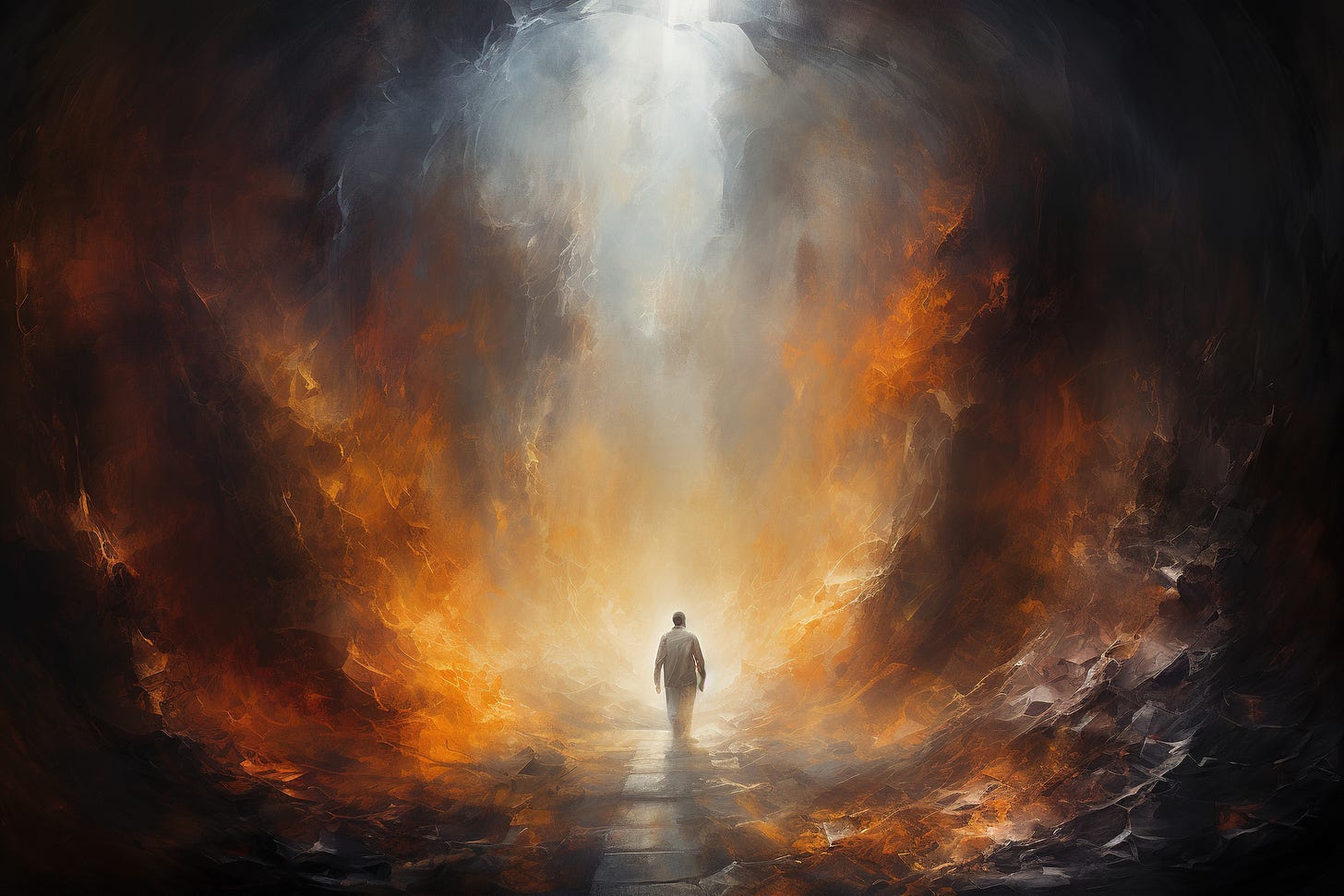The Importance of Accountability
One of the most critical aspects of personal development and a healthy society is individuals taking responsibility for their actions and being held accountable. When someone makes a mistake, the process of accountability involves three steps: recognizing the error, correcting it, and facing the consequences if the mistake is punishable, such as a crime.
For instance, consider driving. If I decide to accelerate beyond the speed limit (which I have done sshhhh), fully aware that I am breaking the law, I must be prepared to accept the consequences. If the police stop me (this has happened too), I should accept the fine without protest, understanding that my actions have repercussions.
The Decline of Responsibility
But look at our society today, the number of responsible individuals is diminishing, largely due to fear. Fear manifests in various ways: fear of what others will think, fear of facing consequences, and, most dangerously, fear of shattering the illusionary self-image. Many of us harbour false perceptions of ourselves one way or another. A healthy personality and mind strive to dismantle these illusions upon recognizing them, despite the associated pain. This pain is essential for personal growth and evolution. In the same way that happiness cannot exist without sadness. Through the opposites we learn and evolve.
The Danger of Illusions
A significant problem arises when we avoid confronting ourselves, allowing these false images to strengthen. We then surround ourselves with enablers, pushing away those who challenge our delusions. This can lead to pathological narcissism, where the illusion becomes so powerful that even the desire to break free is not enough. This downward spiral leads to self-destruction and eventual collapse, as living in a disconnected mental bubble is unsustainable in the long term.
Society's Complicity
Look at what is happening today. If someone is obese, society often responds with phrases like "love yourself," "everyone is different," and "it's okay, you are amazing." While self-acceptance is an important first step to change, if you skip the second step, it perpetuates an illusion. People encourage this perspective because they, too, seek validation for their own issues. As a result, unhealthy behaviours become acceptable, immorality becomes tolerated, irrationality is seen as rational, and everything is turned upside down.
Wisdom Ignored
Wisdom that has been forged over millennia can disappear in an instant because many people refuse to face reality and take responsibility for their actions. This avoidance leads to a societal shift where the line between right and wrong becomes blurred. Personal growth and societal health depend on our willingness to confront uncomfortable truths and hold ourselves accountable.
The Jungian Perspective
Carl Jung famously stated that a person matures by facing their shadow – the dark, hidden parts of ourselves. This requires maturity and strength. Jung metaphorically noted that the trees in paradise have their roots in hell, suggesting that personal growth stems from confronting and integrating these darker aspects.
The Role of Hardships
Life's hardships present opportunities for growth but also pose dangers, such as becoming resentful, angry, and jealous. But you make the choice, nobody else. In "Star Wars," Yoda warns young Anakin that fear leads to anger, anger leads to hatred, and hatred leads to the dark side. This sequence illustrates the consequences of avoiding responsibility and self-reflection. Failing to address our problems can result in negative emotions and behaviours, such as anger, resentment, and revenge, diminishing our conscience and rationality.
Modern Society's Challenges
Today, societal issues reflect this lack of responsibility. Many people blame others for their problems, fuelled by misguided psychotherapists who encourage this blame-shifting. This attitude leads to an inability to accept criticism, emotional instability, and a regression to primal instincts, undermining our human distinguishing traits of consciousness and rationality.
Our society is rife with anger and an inability to accept criticism. Individuals frequently accuse others of their misfortunes. But we all know very well, that this behaviour often starts within families. As I wrote in my previous article, we are no longer raising resilient children. Instead, we are raising emotionally fragile individuals unable to face reality and improve themselves.
The Way Forward: Embracing Responsibility
To reverse the trend of diminishing responsibility, we must foster a culture of accountability. This begins with personal introspection and extends to societal norms. It's essential to understand that nobody can make you angry; you allow this emotion to arise within you. When you possess self-knowledge and understand who you are, you aren't insulted when someone points out a flaw or tries to belittle you. The root of anger often lies in fear—fear of being exposed. A fear that is over exaggerated to the narcissistic personality.
Addressing Modern Blame-Shifting
Today, instead of facing this fear and taking responsibility for our reactions, we often resort to using modern psychological terms to shift blame. Phrases like "you breached my boundaries" or "you're gaslighting me" are frequently employed to accuse others, rather than looking inward and addressing our own responses. We must recognize that our reactions are within our control and that only we can allow them to manifest.
Running away from difficult situations is not a viable solution. When we flee, we are not escaping the other person but rather running away from ourselves. Once again, to build a culture of accountability, we need to encourage self-reflection and personal responsibility. By doing so, we can develop resilience, improve our emotional intelligence, and foster healthier relationships both with ourselves and others.
Teaching Responsibility to Future Generations
It is therefore essential to teach children the importance of taking responsibility for their actions, facing consequences, and learning from mistakes. Encouraging open, honest self-reflection and promoting resilience can help individuals break free from harmful illusions and develop healthier, more accountable behaviours.
Conclusion: A Call to Action
In conclusion, the disappearance of personal responsibility is a pressing issue with far-reaching consequences. By understanding and addressing the root causes, facing our fears, and taking responsibility for our actions and reactions, we can break free from harmful patterns and cultivate a society where individuals are more responsible, rational, and connected to reality, ultimately leading to personal growth and a healthier social fabric. We can then all have healthy discussions no matter where you come from, because we will be able to listen, reflect, learn and improve.







Wow, I am in total agreement, the concept of personal responsibility both to “self” and society has been a foundation of philosophical thought for millennia. Stoicism is based on the concept of self-reflection being necessary for meaning.
Greed is another fear-motivator that fits your argument. If someone accumulates excess over others than one interpretation, is that person is “better”. Better therefore more deserving, less constrained, unequal and separate from social norms. Maintaining that perspective is a different fear of loss of self-image, self -respect, self-importance.
Narcissism when practiced as a group identity along with a fear of scarcity becomes dangerous.